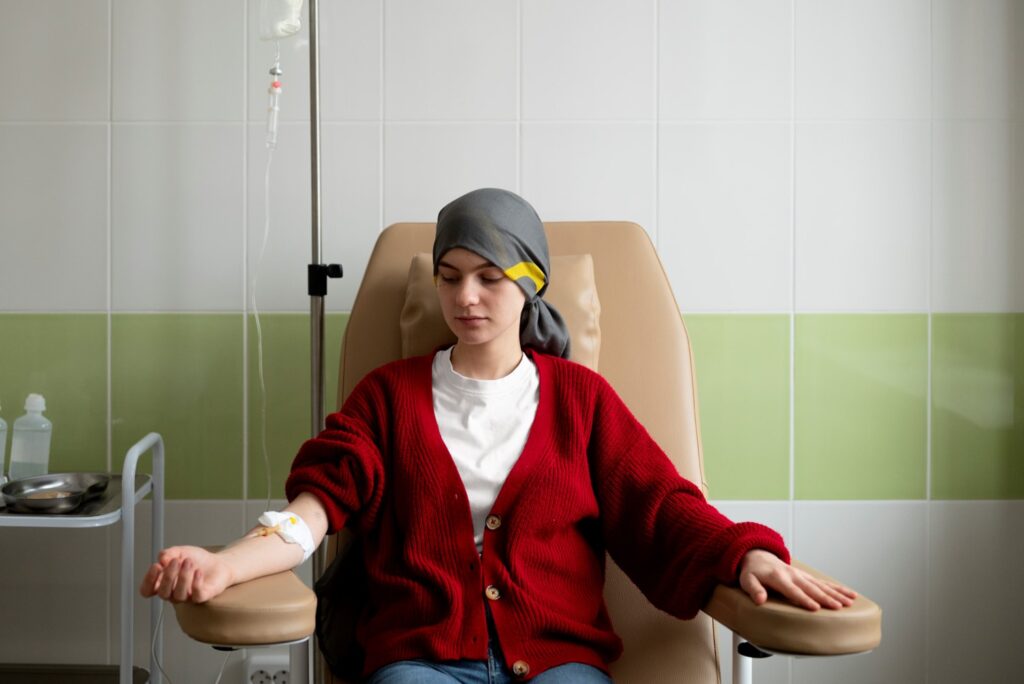What Is Cancer Pain?
Cancer pain is a common problem for many people with cancer. It can happen at any stage of the disease. Often, cancer pain management is needed to help patients feel better. This pain can be mild or very strong. Sometimes, it comes and goes. Other times, it stays for a long time. According to the World Health Organization (WHO), about 55% of people with cancer experience pain. Because pain can affect daily life, it is important to understand and manage it well.
Common Symptoms and Types of Cancer Pain
Cancer pain can feel different for each person. For example, it may be sharp, dull, burning, or throbbing. Some people feel pain in one spot, while others feel it in many places. Here are some common symptoms:Constant aching or sorenessSudden sharp or stabbing painBurning or tingling feelingsPain that gets worse with movementPain that wakes you up at night
There are also different types of cancer pain:Acute pain: This pain starts suddenly and lasts a short time.Chronic pain: This pain lasts for weeks or months.Breakthrough pain: This is a sudden, strong pain that happens even when you are taking pain medicine.Nerve pain: This pain happens when cancer affects the nerves.
Causes and Risk Factors
There are many reasons why cancer pain happens. Sometimes, the cancer itself causes pain by pressing on bones, nerves, or organs. In other cases, treatments like surgery, chemotherapy, or radiation can lead to pain. Some risk factors include:Type and stage of cancerLocation of the tumorPast treatments or surgeriesOther health problems, such as arthritis
Because each person is different, pain can vary even among people with the same type of cancer.
How Cancer Pain Is Diagnosed
Doctors use several methods to find out what is causing cancer pain. First, they ask about your pain. For instance, they may ask where it hurts, how strong it is, and what makes it better or worse. Next, they may do a physical exam. Sometimes, tests like X-rays, MRI, or CT scans help find the source of pain. Keeping a pain diary can also help your doctor understand your pain better. This way, you can get the right cancer pain management plan.
Treatment Options for Cancer Pain
There are many ways to get relief from cancer pain. Your doctor will choose the best option based on your needs. Here are some common treatments:Pain medicines: These include over-the-counter drugs like acetaminophen, as well as stronger medicines like opioids.Nerve blocks: Doctors may inject medicine near nerves to block pain signals.Physical therapy: Gentle exercises and stretches can help reduce pain.Integrative therapies: Some people find relief with acupuncture, massage, or relaxation techniques.Radiation or surgery: These treatments can shrink tumors and ease pain.
Because each person is unique, your doctor may use a mix of these treatments. According to the CDC, combining therapies often works best for cancer pain management.
Lifestyle Tips and Self-Care for Managing Pain
Besides medical treatments, self-care can help you manage pain. For example, you can try these tips:Stay active with gentle movement, like walking or stretchingUse heat or cold packs on sore areasPractice deep breathing or meditation to relaxKeep a regular sleep scheduleEat healthy foods and drink enough waterTalk to friends or join a support group
Because everyone is different, some tips may work better for you than others. Always talk to your doctor before trying new activities.
Prevention and Pain Management Planning
While not all cancer pain can be prevented, planning ahead can help. For instance, you can:Tell your doctor about pain early, before it gets worseFollow your pain management plan closelyKeep track of your pain in a diaryAsk about changes in your treatment if pain increases
Because pain can change over time, regular check-ins with your healthcare team are important. This way, your plan can be updated as needed.
When to Seek Medical Help
It is important to know when to call your doctor. For example, seek help if:Your pain suddenly gets much worsePain medicine does not helpYou have new symptoms like fever or confusionYou feel very sad or hopeless
Because quick action can prevent problems, do not wait to get help. Your doctor can adjust your treatment to give you better relief from cancer pain.
Conclusion
Cancer pain can be managed with the right care and support. Many options are available for cancer pain management, including medicines, therapies, and self-care. Because every person is different, your plan should fit your needs. Consult a healthcare specialist for personalized advice on managing cancer pain.




